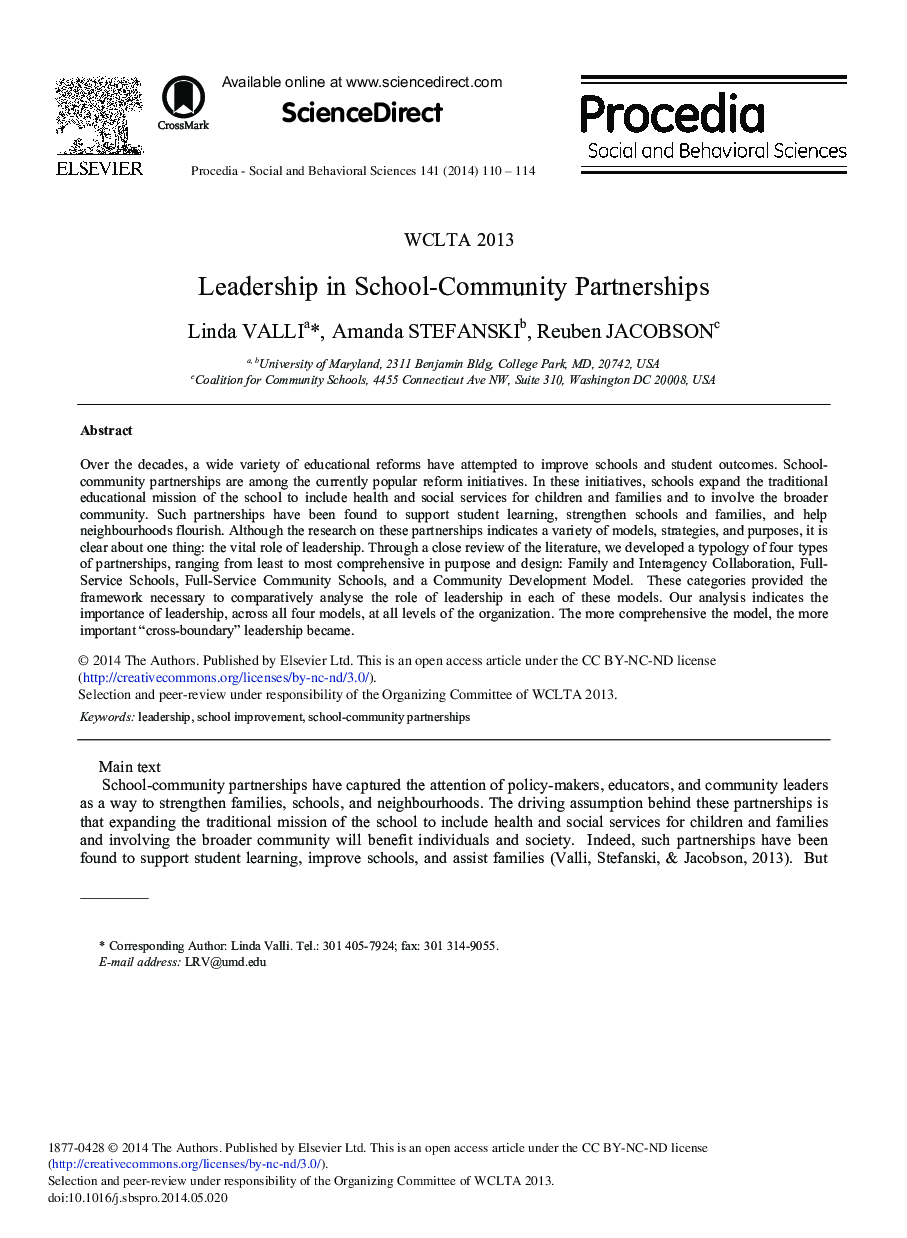| Article ID | Journal | Published Year | Pages | File Type |
|---|---|---|---|---|
| 1113215 | Procedia - Social and Behavioral Sciences | 2014 | 5 Pages |
Over the decades, a wide variety of educational reforms have attempted to improve schools and student outcomes. School- community partnerships are among the currently popular reform initiatives. In these initiatives, schools expand the traditional educational mission of the school to include health and social services for children and families and to involve the broader community. Such partnerships have been found to support student learning, strengthen schools and families, and help neighbourhoods flourish. Although the research on these partnerships indicates a variety of models, strategies, and purposes, it is clear about one thing: the vital role of leadership. Through a close review of the literature, we developed a typology of four types of partnerships, ranging from least to most comprehensive in purpose and design: Family and Interagency Collaboration, Full- Service Schools, Full-Service Community Schools, and a Community Development Model. These categories provided the framework necessary to comparatively analyse the role of leadership in each of these models. Our analysis indicates the importance of leadership, across all four models, at all levels of the organization. The more comprehensive the model, the more important “cross-boundary” leadership became.
